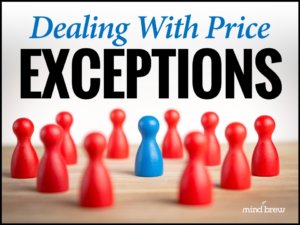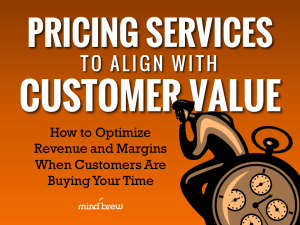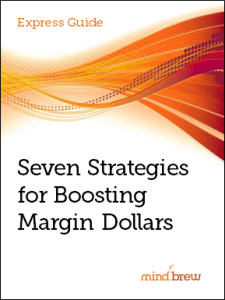In B2B, the shift toward all things “value-based” is no surprise. It’s a predictable reaction to the changes in the marketplace that have been brewing for well over a decade. After all, globalization has increased competition in nearly every category. The Internet has given buyers more information than they’ve ever had access to before. And, the overall economic malaise provides a strong incentive for buyers to grind sellers into a fine powder.
Faced with these realities, B2B salespeople simply can’t sell anymore—at least not in the traditional sense, anyway.
Traditionally, the concept of “selling” has largely been about the art of persuasion. And that’s putting it in the best possible light. Truth be told, in many circles, traditional sales has been about coercion, obfuscation, and manipulation—all designed to “convince” prospects to buy something they may or may not need or want.
However, today’s B2B salespeople can’t operate that way if they hope to be successful. The shift toward value has fundamentally transformed the concept of selling in B2B:
- Beyond being good persuaders and convincers, today’s top salespeople are great educators. They effectively teach prospects how their solutions deliver value and why it’s in their best interests to buy.
- Instead of being master manipulators, today’s top B2B salespeople are master facilitators. They help their prospects champion initiatives and streamline the organizational buying process.
- And, rather than obfuscating the flow of information, today’s salespeople provide clarity. They help their prospects properly frame the issues, weigh the alternatives, and make the best decisions possible.
But here’s the thing: This isn’t news to most B2B salespeople.
As the dynamics in the marketplace have changed over the years, salespeople have had a front-row seat. And, they’ve had to adapt their methods and mindsets just to survive and keep the commission checks coming.
Unfortunately, it’s a different story behind the scenes. Far too many people in product management, marketing, pricing, operations, and so on, still think that selling is about an individual’s ability to persuade a prospect to do something. And as a result, they often fail to deliver what their salespeople really need to succeed.
To survive and thrive in this value-oriented marketplace, everyone—not just the sales team—needs to understand how the concept of selling has changed. Some would argue that it’s changed for the better. Some would argue that it’s somehow worse. But no one can argue that it’s very, very different.












